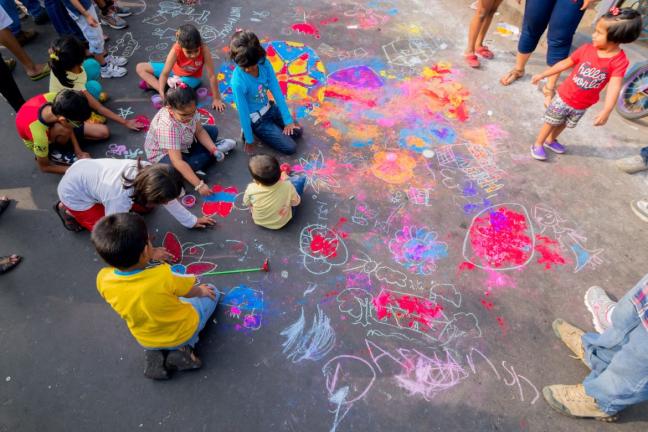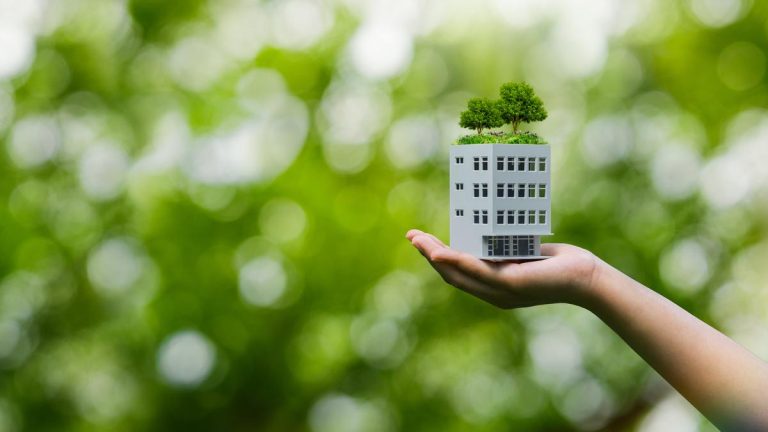“The world is on fire, from the Amazon to California, from Australia to the Siberian Arctic. The hour is late and the moment of consequence, so long delayed, is now upon us. Do we watch the world burn, or do we choose to do what is necessary to achieve a different future?” — Christiana Figueres and Tom Rivett-Carnac in ‘The Future We Choose: Surviving the Climate Crisis’
The impact of the climate crisis is becoming more visible with frequent and increasingly devastating extreme weather events. As a result, climate change is becoming a focal point of mainstream conversations in both the media and our homes. From headlines, movies and talk shows to everyday discussions, the emergence of the climate change narrative marks an important and necessary shift.
However, much of the current discourse is leaving people anxious and breeding a sense of resignation. Studies suggest that 77% of people are worried about climate change, but most of them are also pessimistic about the possible solutions.
Fear has long been a powerful motivator in drawing attention to crises; however, it isn’t enough to sustain long-term action. “When most people think about climate action, they immediately default to things they have to give up for the planet,” says Dr. Jiaying Zhao, in her TED talk ‘How to Feng Shui Your Fridge and Other Happy Climate Hacks.’ She further says, “The mindset is so ingrained in us, partly because of the current narrative on climate action based on personal sacrifices. Drive less, eat less, shop less…and these negative emotions are not conducive to long-term behavior change.”
People are more likely to act when they feel encouraged, motivated and supported.
Unlocking Positive Climate Narratives
Storytelling has the potential to inspire the much-needed optimism critical to collective climate action. Across the globe, experts are now striving to share positive climate action stories to shift the narrative and drive action for a better future.
One such story comes from the Penthakata fishing community in Odisha, which faced water scarcity and sanitation issues. The women from the community took it upon themselves to address these challenges. Through a collaborative blue-green infrastructure project, led by Spandan and WRI India, they worked together to create a natural water filtration system for wastewater. This helped reduce the spread of diseases and shape resilient and safe public spaces, directly benefitting 5,000 families in the settlement.
Kerala offers another story of community-driven change. Kawaki, an urban greening movement, was enabled by the support of local communities in Kochi and demonstrated a people-centric approach to local-level urban development. The successful initiative was earmarked for institutional funding from the mayor’s office and employed women to manage and scale up greening initiatives.
Highlighting success stories of community-driven climate action fosters a sense of hope and possibility. When people see tangible examples of positive change, they are more likely to believe that their actions can make a difference, inspiring others and leading to broader systematic changes. While climate action requires systemic shifts across the policy and industry landscape, individual and community initiatives can not only inspire change but can also generate support for change across sectors.
The largest open-street event in India, Raahgiri Day, is yet another pertinent example of how positive narratives can steer a conversation toward new ideas and innovation. In many cities, Raahgiri Day has also spread awareness about road safety, women empowerment, child rights, health and other social issues.
Bringing Knowledge Within Reach
One of the barriers to climate action is the perceived complexity of the issue. According to a recent survey, while many Indians are worried about climate change and support the government’s initiatives, a knowledge gap persists. About 54% of Indians reported knowing either just a little or nothing about global warming. However, when given a short explanation, most people could immediately grasp the problem and recognize its impacts.
By making climate expertise accessible and understandable, we can empower more people to act. This involves breaking down scientific jargon into relatable terms and providing practical advice that can be implemented in daily life.
Educational platforms, workshops and community programs are vital for empowering communities and fostering collaboration. Recently, the Mahila Housing Trust and WRI India organized a workshop titled ‘Unpacking Community Action’ on addressing local challenges and enhancing government-community partnerships. One of the highlights of WRI India’s annual flagship event – Connect Karo 2024 – was a session where adolescents shared their insights and contributions towards creating a more adolescent-friendly city, demonstrating the importance of including young voices in urban planning and development.
The Path Ahead
The climate crisis demands coordinated action from all sectors — governments, businesses and communities. This collective approach ensures that even as communities and individuals take steps in the right direction, infrastructure and policies evolve to create an enabling environment for a sustainable future.
Changing mindsets is critical to drive the much-needed action. Small and meaningful actions at the individual level – whether participating in tree-planting initiatives, relooking wasteful consumption patterns or sharing lived experiences on community forums – are just some of the ways we can trigger change. Initiatives like volunteering at community gardens, taking part in recycling programs and supporting carpooling not only reduce environmental impact but also build a sense of shared purpose. When people witness their neighbors and friends taking action, they feel encouraged to follow suit.
While fear can draw attention to the urgent need for climate action, it is optimism that sustains it. By embracing climate-positive stories and making knowledge accessible, we can unlock the vast potential for collective change. The journey toward a sustainable future demands that we not only acknowledge the gravity of the crisis but also believe in our shared ability to collaborate and create meaningful solutions.
Source link : View Article
Author
-

Tanushree Venkatraman is the Senior Communications Manager, leading media engagement for WRI India. She is part of the Core Communications team, which oversees the strategy and outreach supporting WRI India’s leadership and program teams.



